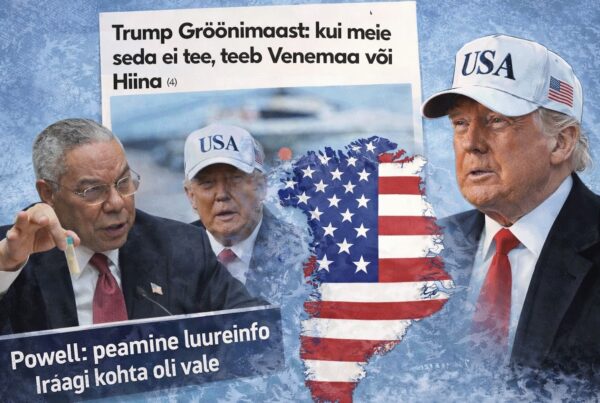The Importance of Vaccination Freedom in the System of Fundamental Rights
Conference Presentation | Varro Vooglaid | 11 September 2025
Ladies and gentlemen,
Allow me to begin by expressing my sincere gratitude to the organizers, to my fellow speakers, to this hotel as a conference venue, and to all of you who are present here today. It is thanks to your joint effort and courage that this important event is taking place—despite the obstacles, despite the pressure, and despite the attempts to silence, ridicule and marginalize us.
We may have been forced out of the Parliament building, but the discussion itself has not been stopped. The very fact that so much effort is made to avoid or suppress debate is perhaps the clearest possible evidence that such debate is urgently necessary. When people are unwilling to engage openly, it is most likely because their position cannot withstand honest scrutiny.
But let me now turn to the subject of my presentation.
As the title indicates, I will speak about vaccination freedom and its importance within the system of fundamental rights – based on my experience from legal battles against Covid vaccine mandates. But before addressing that directly, I must begin with a broader observation.
For decades, those who hold political power in Western societies have called themselves liberals. They claim to defend the ideal of a free society. Yet in practice we have witnessed the opposite: a steady narrowing of the scope of fundamental rights and freedoms.
This narrowing does not affect only one or two rights. It affects the entire spectrum—freedom of speech, freedom of conscience, freedom of religion, privacy and family life, parental rights, freedom of association, the secrecy of communication, the right of self-defence (gun rights), freedom of enterprise, the right to private property, the freedom of movement, the right to health and life. One by one, step by step, all these freedoms are being restricted. As if constitutional rights no longer have real significance.
At the same time, democratic rights have been—and are being—hollowed out. Political power moves ever further away from citizens, into the hands of unelected bureaucrats and judges, both on the national and international level. Referenda are very rare, almost nonexistent. Elections matter less and less, because opaque electoral systems and powerful instruments of mass manipulation ensure that those who rise to power are merely interchangeable executors of the same program.
It is therefore no exaggeration—it is a sober statement of fact—to say that the circles calling themselves liberal have been conducting a systematic assault on the very foundations of free and democratic society. Behind the façade of liberal democracy, a new authoritarian order is being built. Its pillars are plain to see: the centralization of power on a global scale, the rise of AI-based surveillance systems (such as Palantir), the introduction of central bank digital currencies, the suppression of private property, the marginalization of the family and other natural social hierarchies, the suppression of free speech, and so on.
This transformation does not occur through a sudden coup. It advances gradually, step by step, measure by measure. No single step is shocking enough to provoke mass resistance. And so many fail to see the overall direction. Others do see it, but find themselves unable to mobilize society effectively. The result is widespread apathy—and apathy is the fertile soil in which authoritarianism grows. Let us hope that tragic events such as the murder of Charlie Kirk help open the eyes of the masses.
Against this wider background, the restriction of vaccination freedom must be understood as part of the same process. That is, health dictatorship is part of a wider dictatorial program. As Klaus Schwab has infamously stated: “The pandemic represents a rare but narrow window of opportunity to reflect, reimagine, and reset our world.”
Let us recall that before the Covid crisis, there was broad consensus in Estonia and across the West that vaccination freedom—understood more broadly as the right to decide freely about medical treatment—was a constitutionally protected right. That consensus was not seriously questioned in public discourse, political debate on the matter was virtually absent.
From 2020 onwards, however, this consensus was abruptly overturned. Suddenly, we were effectively told—and told very aggressively—that personal autonomy in matters of health belongs to the past. Just as privacy is now often described as a relic of the 20th century, so too has the right to decide what substances may or may not be introduced into one’s own body been portrayed as outdated, incompatible with the so-called challenges of the 21st century. In short, the message was that the freedom of choice over one’s own body was no longer something society could afford.
And yet—in legal terms—nothing had changed. The principle of bodily integrity remains embedded in our Constitution. Article 18 prohibits torture, cruel treatment, and subjection to medical or scientific experiments without free consent. Other provisions reinforce the same principle: the right to health, the right to private and family life, the right to self-determination, freedom of thought and belief, the right to human dignity, personal liberty, and the right to life. Vaccination freedom is inseparably linked with all these rights.
The same principles are affirmed in binding international instruments: the International Covenant on Civil and Political Rights, the European Convention on Human Rights, and, most explicitly, the Oviedo Convention on Human Rights and Biomedicine. That convention was adopted in 1997 precisely to safeguard human dignity and autonomy in medicine. Article 2 declares the primacy of the human being over the interests of society or science. And Article 5 requires that any medical intervention may take place only with informed and voluntary consent, following adequate information about its purpose, nature, risks, and consequences. These are not minor details. They are core principles of a free society.
Despite these guarantees, in 2021 many governments in Europe and elsewhere introduced vaccine passport systems. Effectively, these systems were nothing short of a form of mandatory vaccination. For freedom of vaccination does not exist if refusal of vaccination is penalized by exclusion from social life, by loss of employment, income and professional career, or by serious restrictions on fundamental rights. Coercion need not come with handcuffs and police batons. It is enough if the cost of refusal is made morally, economically or health-wise unbearable or unrealistic. That too is compulsion.
When the vaccine passport system was challenged in the courts—and as a lawyer I was connected to many such cases—a sobering reality became clear. Citizens discovered that legal protection was, in practice, absent. Instead of defending constitutional rights, the judiciary often acted as an enforcer of an unjust political program, helping to destroy the careers of many military officers, policemen, and others who had faithfully served the state for a long time, but refused unnecessary injections of experimental substances, in fact falsely called vaccines Claims and applications were dismissed even when the lack of justification for government decrees was obvious to any reasonable observer.
Fortunately, not every judge surrendered to this pattern. There were some notable exceptions—judges who refused to lend legitimacy to authoritarian measures. One particularly important decision came from the Tallinn Administrative Court on 31 May 2022. The court recognized that the vaccine passport system amounted to indirect compulsion and was incompatible with human dignity and the principles of the rule of law. This honest judgment by judge Andreas Paukštys declared unambiguously that exclusion from society cannot be trivialized as the mere loss of conveniences. And such measures, the court explained, cut to the very heart of human dignity.
Although such judgments were later overturned at higher level courts—on dubious grounds, to say the least—they remain shining examples of judicial integrity. They remind us of what it means for a judge to take seriously the duty to protect the Constitution and the dignity of the human person.
However, when it became clear that the courts would not provide real protection, I decided—after being elected to Parliament in 2023—to try the legislative path. I drafted a bill to amend the Penal Code and provide explicit protection for vaccination freedom. I will not go into the details of the proposed regulation, but in essence the proposal was clear: to criminalize the administration of medication without informed consent, as well as coercion or pressure to undergo treatment, including vaccination. The proposed penalties ranged from fines to imprisonment, with heavier sentences in aggravated circumstances—such as cases involving minors, significant harm, groups of victims, abuse of authority, the use of experimental substances et cetera.
The bill also included a narrow exception: in urgent, life-saving situations where a patient cannot express consent, qualified medical professionals may act if it is necessary to preserve the patient’s life.
As expected, the governing coalition rejected the bill at its very first reading. This outcome should not be regarded as surprising, for the very political forces that blocked the bill were, to a large extent, the same ones responsible for the widespread violations of vaccination freedom in 2021 and 2022.
But here, rejection of the bill does not mean the effort was wasted. On the contrary, it underlined how necessary such efforts remain – both in Estonia and elsewhere. For protecting bodily integrity from the intrusions of governments, international organisatsions and corporations is not optional. It is the most basic duty of any state that claims to respect human dignity.
If we abandon this principle, we open the door to ever deeper intrusions. What begins with compulsory injections may expand to demands for biotechnological implants—chips placed in our bodies in the name of health or security. The same noble-sounding slogans will be used again. And if the principle of free consent has already been eroded, our ability to resist will be gravely weakened. What follows is a dictatorial system of servitude on an unforeseen scale.
Ladies and gentlemen, allow me to conclude. Without respect for bodily integrity—and without vaccination freedom as a central part of it—we cannot speak of a free and just society. These principles are not negotiable. They stand at the very core of human dignity.
To defend them is to defend the essence of what it means to be human: to be treated not as a means to an end, but as a free and rational being with the right to make informed decisions about one’s own life and to take responsibility for those decisions.
Therefore, it is our most important responsibility to defend these principles courageously and tirelessly. For my part, I am grateful to stand and to collaborate with politicians, lawyers, doctors, scientists, academics, journalists and others who have kept a functioning conscience and who are willing to join in this cause. Thank you all for doing your part, and thank you for your attention! May God bless you!







